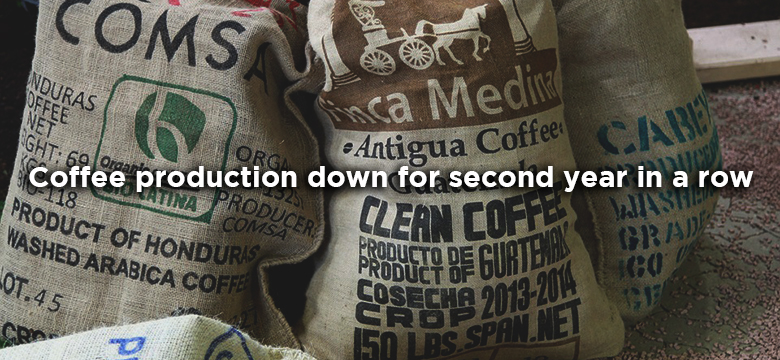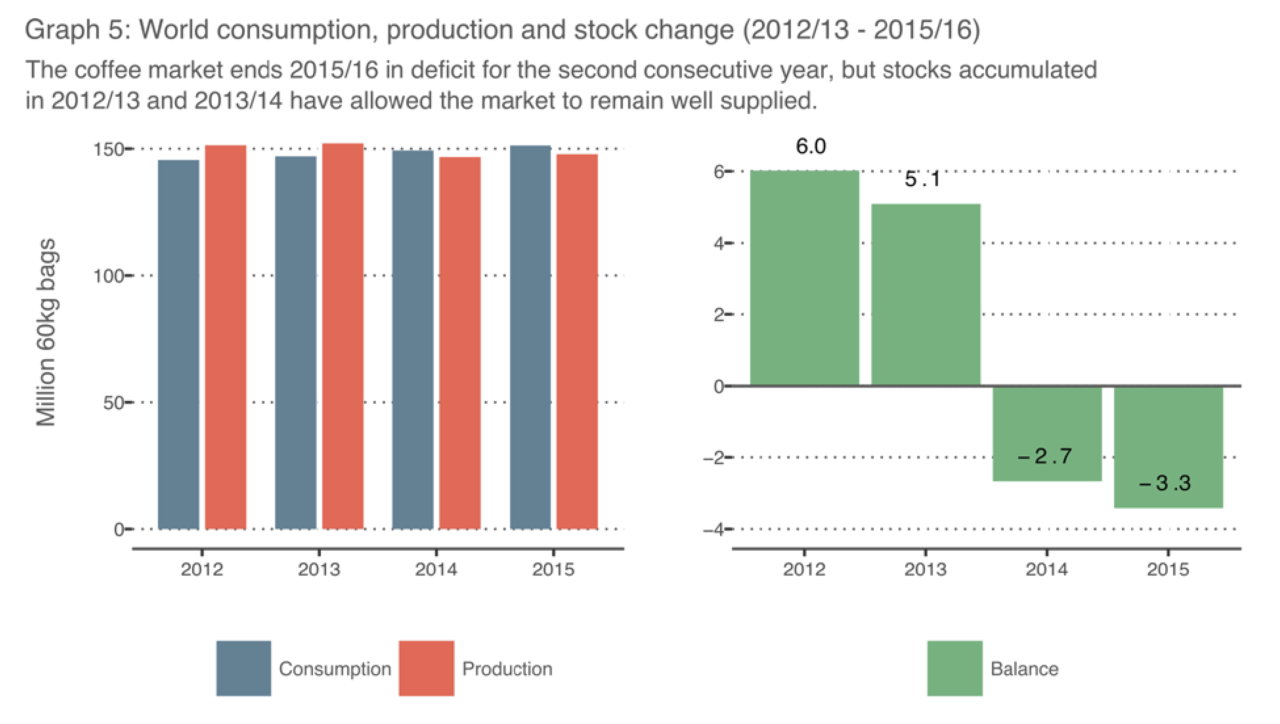Coffee production down for second year in a row

The world coffee market is facing up with the reality of a deficit of 3.3 million bags, making it the second year in a row that production has no quite met demands.
Despite this warning, the global coffee production increased by 5.5% in September as Robusta prices increased steadily just before the year end.
This data comes direct from the International Coffee Organisation, with some encouraging news coming from the organisation.
Coffee growing is becoming much more difficult, climate change is decimating some of the best growing locations on the planet, with the very real risk that we could see the coffee plant going extinct in the next 50 years.
Therefore it’s import that we understand what these figures actually tell us about global coffee production.
So let’s get into the nitty gritty of the facts and figures of the past 6 months of coffee growing.
The total coffee production estimates are set at 148 million bags of coffee (for reference a bag of coffee is 60kg) or eight billion, eight hundred eighty million kilograms (8,180,000,000)…quite a lot of coffee.
But here is where the issues lie, we as consumers are consuming 151.3 million bags of coffee or nine billion, seventy-eight million kilograms (9,078,000,000) so we have a deficit of one hundred ninety-eight million kilograms (198,000,000).

Image provided by International Coffee Organisation.
Where is all this extra coffee supposed to come from?
Well luckily, we have a surplus of stock in importing countries, surplus years in 2012/13 and 2013/14 reached 24.2 million bags.
So we have more than enough coffee to just about keep us afloat.
In terms of worldwide production, Brazil has seen a decrease in their farm production figures, still reeling from the 2014 drought. But despite this have recorded a record exports of 36.9 million bags of coffee in 2015/16.
Vietnam and Colombia have ended 2015/16 with a production outputs of 27.5 million and 14 million bags respectively. Colombia recording the highest output since 1992/93.
Despite the negatives, the trends are showing that coffee production may recover. Ever the optimists, we will try our best to remain positive, and we do genuinely believe that coffee production will improve.
With improving technology, education and farming techniques we are sure that our beloved coffee bean will continue to be available in vast quantities as we increase our demand for quality coffee.
